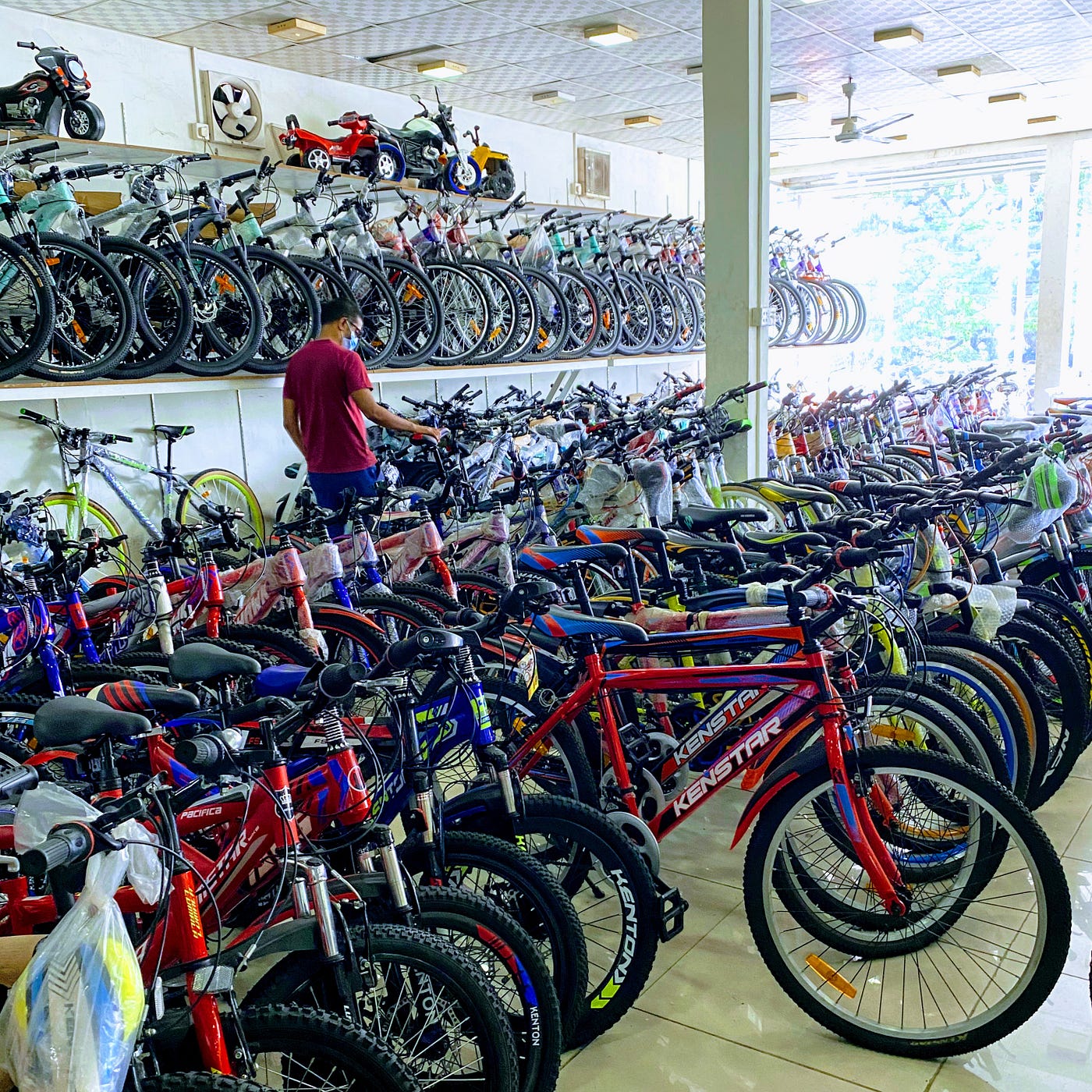How The Rich Are Doing In Sri Lanka’s Collapse

I’m rich in Sri Lanka. Indirectly, but it’s one household. What I will detail here is honestly embarrassing and goes unspoken in polite company, but you should know how rich people are doing at this time of terrible suffering. We’re mostly fine, and it’s a crime.
For a brief period, the collapse hit everyone and the suffering was—if not equal—at least shared. Everyone got power cuts, everyone lost money, everyone struggled to get fuel and food. We had most of our money in fixed deposits, and that got obliterated probably 50% by inflation and the exchange rate collapsing. We lost power with everyone else and sweated it out. We also waited in queues, and protested.
Then the unelected Ranil Wickremsinghe became Prime Minister, unelected billionaires like Dhammika Perera become Members of Parliament, and the country became an almost pure oligarchy, backed by foreign powers. Then things started getting better for the rich, while everyone else got even more fucked.
Ranil stabilized things for us and bought us time to regroup and consolidate our privileges once again. His appointment took the momentum out of the protests and gave the government cover to start rounding thousands of protestors up. Now the country has troops on every corner and is arresting people all the time.
In the meantime rising interest rates meant our decimated savings started earning again (which poorer people could no longer afford the other side of that balance sheet, their loans). The stability bought let us buy battery-backups (1.6 million) so no more powercuts, and electric cars or bicycles (which now cost double) to avoid the fuel queues. Which our drivers were waiting in anyways.
If we earn dollars in any way (as I do) our income actually increased with the collapse, but we’re not bringing it back to Sri Lanka. We’re holding our money in foreign currency, as are big export-earning companies. These companies were already causing much of the forex crisis through misinvoicing and transfer pricing, but now they bring even less in, and even use their money to setup factories elsewhere.
Now elites like me are calling for sacrifices, but not by us. We support firing the poorest government servants, reducing subsidies on fuel, and letting prices float freely (ie, letting everything get very expensive). None of this stuff affects us. We’re not poor government servants, fuel is not our livelihood, food is not a huge portion of our expenses. We support the IMF coming in and colonially ‘fixing the country’ because we’re the new comprador class. We’re very comfortable, and comfortably telling other people to sacrifice. We clothe this all in “it’s just economics”, but it’s not, these are choices.
As Leo Tolstoy said:
“This wonderful blindness which befalls people of our circle can only be explained by the fact that when people behave badly they always invent a philosophy of life which represents their bad actions to be not bad actions at all, but merely results of unalterable laws beyond their control. In former times such a view of life was found in the theory that an inscrutable and unalterable will of God existed which foreordained to some men a humble position and hard work and to others an exalted position and the enjoyment of the good things of life…
Then fresh explanations were needed. And just at the proper time they were produced. These new explanations came in the form of science: political economy [modern economics], which declared that it had discovered the laws which regulate division of labour and of the distribution of the products of labour among men.” (The Slavery Of Our Times, Leo Tolstoy)
I say these are choices because a people’s government, or ideally a dictatorship of the poor, could have made the rich suffer for the problem they caused. Fuel could have been rationed for the public transport and bikes/tuks that 90% of the population uses instead of being guzzled by rich people’s cars. Energy tariffs could have been massively increased for top residential brackets, effectively taxing the rich. Massive public works projects could have been started to employ people in growing food and running community kitchens to feed the starving poor.
Instead we’ve told them to eat cake in the form of interest rates and let the market provide. Which it doesn’t for them at all. By ‘the market’ we just mean our investments, our wealth. By ‘free markets’ we just mean the people that can pay to play. And we’re winning. While things have gotten worse for most Sri Lankans, they have stabilized for the rich, and even become profitable. I’d call it a farce but it’s really a tragedy. People really starve.
The fact is that during colonialism the rich sold Sri Lanka out to colonizers. The fact is that we got into this current mess because, as Dhanusha Gihan Pathirana puts it “it is a vindication of the fact that the corporate elite of Sri Lanka and in underdeveloped economies in general have colonised their own economies and adopted the model of a coloniser through altogether a different mechanism.” Then, because of a crisis they caused, these people have taken the opportunity to put their unelected people in and turn the country into a complete oligarchy, completely beholden to foreign capital.
And so here we are, back on the plantation again, while a privileged few like me live as comfortably as the white planters. People were on the streets calling for system change, for getting all 225 in Parliament out, but we’ve just gotten a shuffling of seats, a rearrangement of the system, and ended up with something even worse.
These elites got really scared after Mahinda tried to violently eject protestors and politicians got their houses burned in response. I know because I’m rich and people talked about it. They were really afraid that they would be next, so the elites formed a united front. And you can see the results. The government is entrenched with guns, the protestor leaders are jailed, and the rich are more secure than everyone else, as they’re accustomed to.
When the power goes out their batteries kick in, if there’s a queue that’s for a servant to wait in, and if there’s suffering it’s just on the news, not something you live. I know because this is how I live and it’s worse than embarassing. It’s criminal. The country is losing while people like me are winning. It’s losing because we’re winning.
The only hope (which is terrifying for people like me) is that the rich can only delay their reckoning, not avoid it. Because tensions are building again. The fundamentals are not changing. People are unable to feed their children, to send their children to school, and eventually something’s got to give.
There was a great moment of hope in the protests, a demand for real system change, for power to the people beyond Parliament, beyond the fundamental colonial idea of democracy that British left us, but it disappated so the rich could get back to business as usual. I am reminded of what Harry Kessler said on May 25th, 1925, as Germany went through a collapse that was about to get much worse.

Kessler said “All the philistines are delighted about Hindenburg” and I could say the same about Ranil, the scion of one of the old feudal families of Ceylon. “He is the god of all those who long for a return to philistinism and the glorious time when it was only necessary to make money and accompany a decent digestion with a pious upward glance. They are waiting for [Ranil] to ‘consolidate’ conditions, meaning adjustement to Philistine standards. Farewell progress, farewell vision of a new world which was to be humanity’s conscience money for the criminal war.”
It is strange how much Kessler’s words echo across time, to the current predicament of Sri Lanka. The only hope is that this is only temporary. The terror is that it will get worse. As Kessler said, “until the day the butcher arrives and demands his toll, it is going to be possible once more to live cosily as a stuffed sheep or gorged goose.”
And we all know how stuffed sheep and gorged geese end up. Mutton and foie gras. The rich are doing fine out of Sri Lanka’s collapse right now, but by the wrath of god, someday they will not. I regret to say this because I am rich, but look at us. Whatever we give away in taxes or charity cannot wash away the rank inequity of it all. To paraphrase Lady Macbeth “here’s the smell of the blood still: all the [oils] of Arabia will not sweeten this little hand.”
The fact is that my country is suffering and I am fine. On a class level I can see people like me calling for heaping even more burdens on the poor and letting every foreign billionaire and imperial bureaucrat run rampant over the place and it’s just nauseating. On a personal level I’ll do everything to take care of my family, but as part of the Sri Lankan family I know that something is terribly, terribly wrong. I also know there’s no justice in the world, just the blunt instrument of even more total collapse, so I truly fear for us all.
